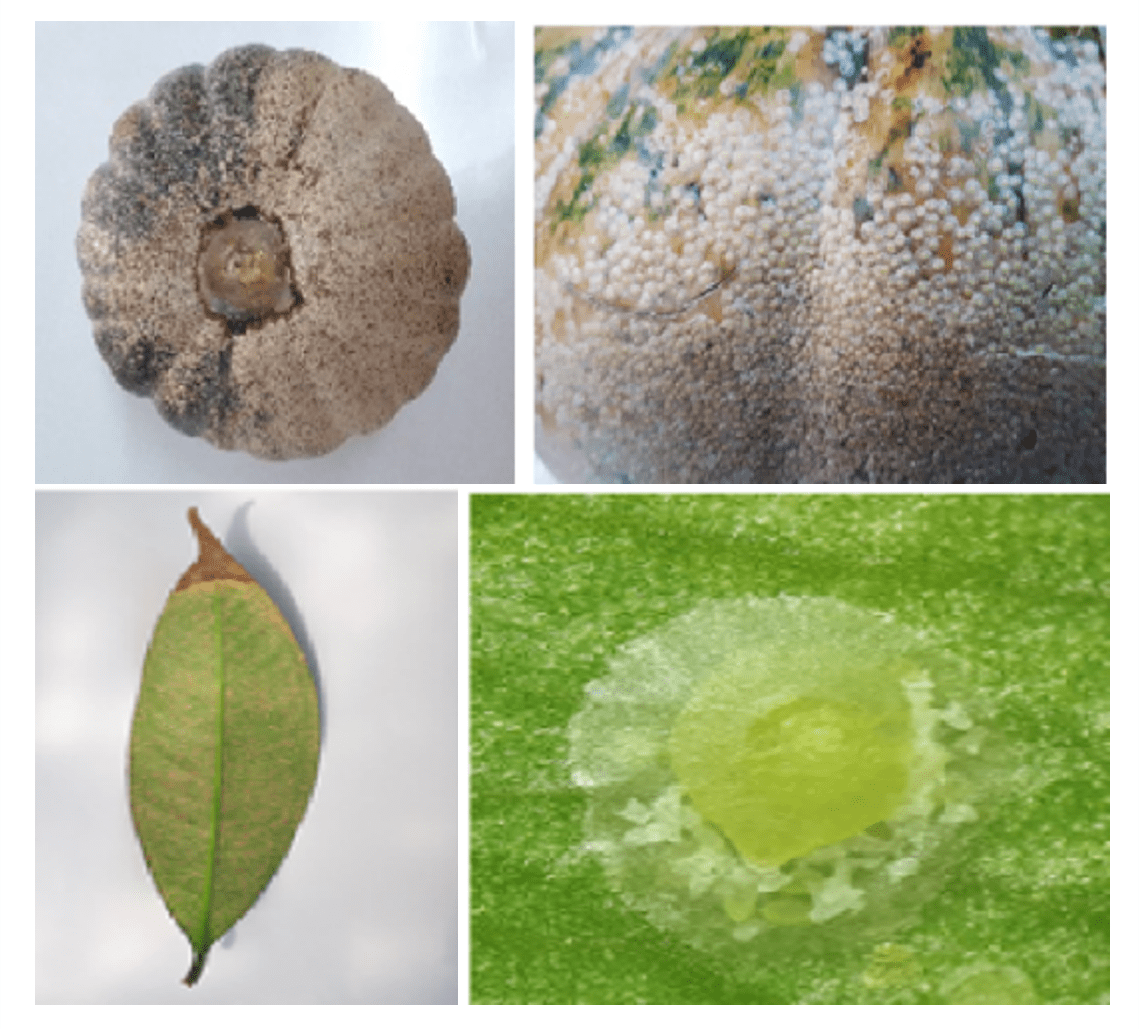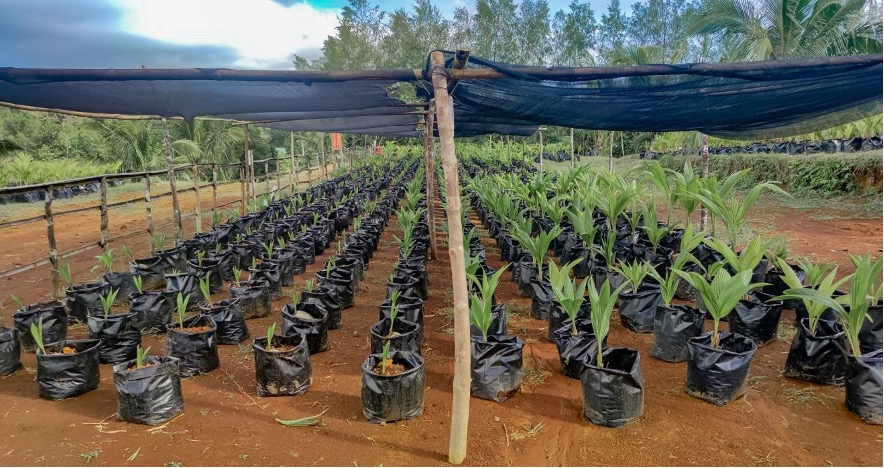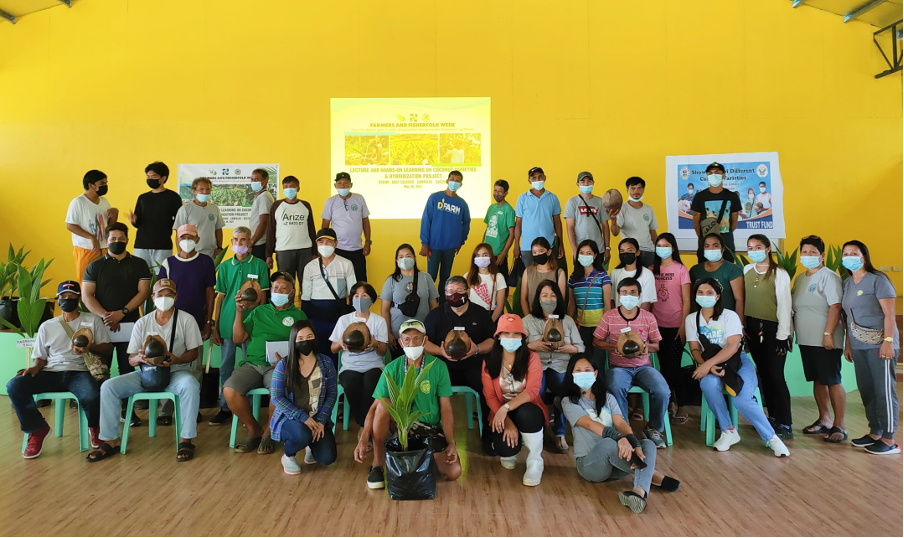
The University of the Philippines Los Baños (UPLB) and the Philippine Coconut Authority (PCA) Region IV-A continue their research and development efforts on generating the draft genome of the coconut scale insect (CSI) and in producing hybrids through two coconut hybridization schemes, respectively.
The two projects are being funded by the Philippine Council for Agriculture, Aquatic and Natural Resources Research and Development of the Department of Science and Technology (DOST-PCAARRD) as part of its Industry Strategic S&T Program (ISP) for coconut.
The project, “Comparative Genomics of the Armored Scale Insects, Aspidiotus destructor Signoret and A. rigidus Reyne (Hemiptera: Diaspididae)” led by Dr. Barbara L. Caoili of UPLB is establishing the draft genome of the two armored scale insects for efficient identification of genes important in pest management.
The project has recently established isogenic populations of A. destructor and A. rigidus in the laboratory rearing facility using squash fruit and mangosteen seedlings, respectively, as host plant materials. A genomic DNA (gDNA) extraction protocol was optimized for a purified high molecular weight gDNA that was used for the molecular validation of the populations. It was verified that A. rigidus samples have shown species-specific amplification as compared with A. destructor, thus validating the homogenous identity of the respective CSI isoline populations.
Genome assembly and annotation will be conducted once the whole CSI genome sequences are available. Nonetheless, the project was able to pilot- test the pipeline for insect genome assembly at the DOST-Advanced Science and Technology Institute’s (ASTI) Computing and Archiving Research Environment (COARE) server. Several project staffers are continuously being trained in bioinformatics analysis. Likewise, preliminary SSR analysis has been conducted using the transcriptome shotgun assembly data of the A. destructor and A. rigidus as a preparation for SSR mining and marker design component.
Meanwhile, the PCA-Region IV-A project, “Performance Evaluation of the 2-Pronged Coconut Hybridization Scheme in CALABARZON,” which is being handled by Acting Deputy Administrator Ramon L. Rivera of the PCA Research and Development Branch, continuously ensures the production of coconut hybrids through the two-pronged coconut strategy for PCA’s massive coconut planting and replanting program in CALABARZON.\

Now in its final year of implementation, the project has maintained the two sites for Assisted Pollination Scheme (APS) in Tagkawayan and Sampaloc, Quezon and the areas for Directed Natural Pollination Scheme (DNPS) in Tiaong, Quezon and in Los Baños, Laguna.
Around 79,000 buttons of Tacunan Dwarf (TACD) were pollinated with Laguna Tall (LAGT) pollen. Two nurseries were established in Quezon Province for the handling of the PCA 15-10 hybrids (TACDxLAGT) produced prior to its distribution for field planting. It was observed that hybrids produced have thicker girth, good vegetative growth, and are robust as compared with open-pollinated varieties (OPV) produced on the same farms.
A total of 7,660 PCA 15-10 hybrids were already distributed to 50 farmers in 30 municipalities in CALABARZON and 2 municipalities in MIMAROPA covering approximately 70 hectares. Ten hybrid model farms were also established in CALABARZON. Moreover, the project conducted three coconut hybridization and nursery management hands-on training to capacitate farmers, technical workers, as well as extension staff.

The two projects were recently reviewed in a virtual platform to assess their status of implementation and accomplishments; discuss concerns and recommend possible action and solutions; discuss workplan for the succeeding year of implementation; and identify R&D gaps for future initiatives.
The said review was attended by project team members from UPLB and PCA-Region IV-A; Dr. Candida B. Adalla and Dr. Violeta N. Villegas who served as S&T Consultants; and DOST-PCAARRD representatives headed by Dr. Feliciano G. Calora, Jr., Deputy Executive Director for Research and Development with Ms. Renelle C. Yebron, Head of the Program Management and Evaluation, Project-based Information System (PME-PBIS) Section of the Crops Research Division (CRD) and other key representatives from CRD.
